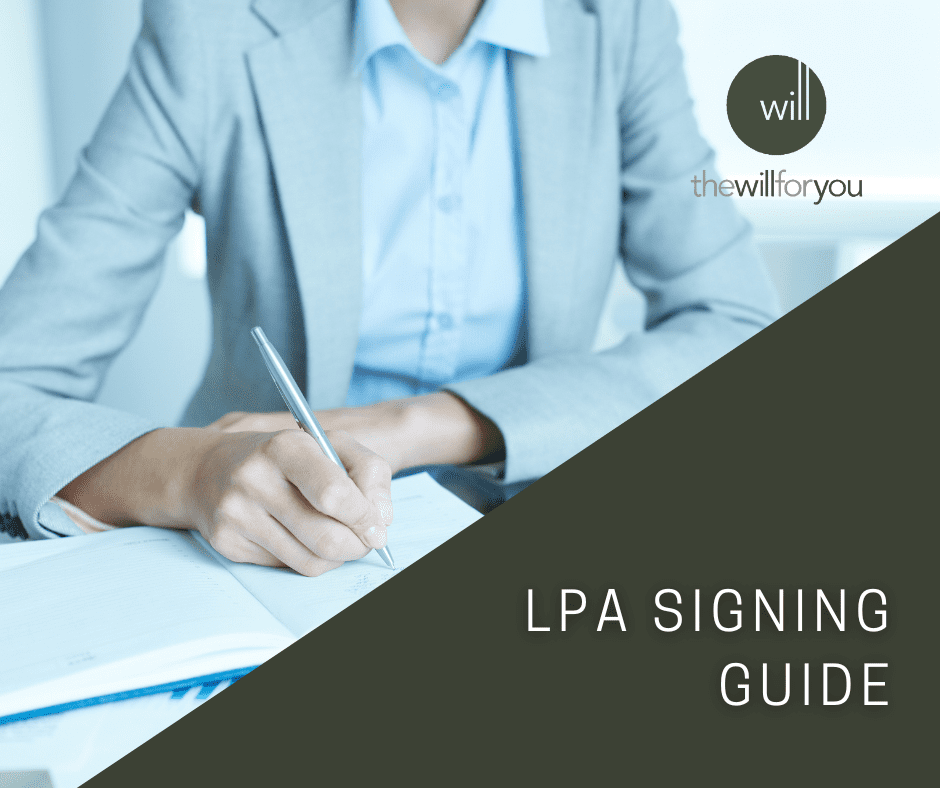Lasting Powers of Attorney
Appointing people to make decisions for you in the event that you can't...
What is a Lasting Power of Attorney?
Empowering Your Future Decisions with The Will For You
At The Will For You, we understand the significance of planning for the future. A Lasting Power of Attorney (LPA) is a legal document that allows you, the ‘donor’, to appoint one or more ‘attorneys’ to make decisions on your behalf should you lose the capacity to do so. This is an essential step in ensuring your wishes are respected, even when you’re unable to communicate them. An LPA is an important lifetime planning tool.
There are two types of LPA, one that gives power to appoint attorneys for your Health and Welfare and one that enables attorneys to make decisions regarding your Property and Financial Affairs.
Who can make an LPA?
- Anyone aged 18 or over, with the capacity to make their own decisions, can set up an LPA. It’s a proactive measure, not just for the elderly or those facing medical challenges, but for anyone looking to secure their future.
The two types of LPA - explained...
- Health and Welfare LPA: This covers your daily routine, medical care, moving into a care home, and life-sustaining treatment decisions. It can only be used once you have lost the capacity to make decisions yourself.
- Property and Financial Affairs LPA: This allows your attorney to manage your bank or building society accounts, pay bills, collect benefits or a pension, and even sell your home. It can be used as soon as it's registered, with your consent.


Registering a Lasting Power of Attorney
Who is the Office of the Public Guardian?
The Office of the Public Guardian – also known as the OPG is a Government body who deals with the registration of Lasting Powers of Attorney.
All LPAs must be registered with the OPG before they can be used. The OPG is responsible for protecting individuals who lack the capacity to make decisions for themselves. Registration ensures that your LPA is valid and legally binding.
The Correct Order of Signing an LPA
- The Donor’s Signature: As the creator of the LPA, your signature comes first. It’s essential to sign in the presence of a witness who must also sign the document. The witness can be anyone over 18 years of age, except the chosen attorney(s).
- The Certificate Provider’s Acknowledgement: After you have signed, a Certificate Provider must complete their section. This individual confirms that you understand the LPA and are under no duress to create it. The Certificate Provider can be someone you’ve known personally for at least two years or a professional like a doctor or solicitor.
- The Attorney’s Acceptance: The next step is for your chosen attorney(s) to sign the LPA. Each attorney must sign to acknowledge their understanding of their role and responsibilities. Similar to the donor’s signature, an attorney’s signature requires a witness.
- Replacement Attorney’s Acceptance (If Applicable): If you have appointed replacement attorneys, they too need to sign the LPA following the same procedure as the original attorney(s).
- Life-sustaining Treatment Decision (If Applicable): If your LPA covers health and welfare and includes decisions about life-sustaining treatment, a special section needs to be completed. This section requires your signature and that of the witness, affirming your consent to give your attorney(s) the power to make these decisions.

Common Mistakes to Avoid
- Signing in the Wrong Order: The LPA must be signed in the order mentioned above. Any deviation can render the document invalid.
- Incorrect Witnesses: Witnesses must be independent; family members, proposed attorneys, or replacement attorneys cannot act as witnesses.
- Incomplete Sections: Ensure all parts of the LPA are fully completed before registering it with the Office of the Public Guardian.


